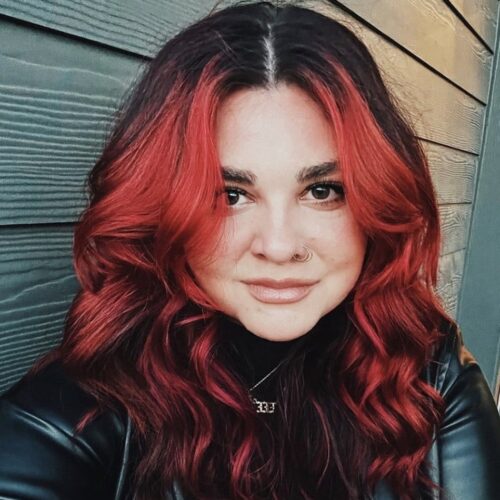Redefining mental health care with heart and purpose
Counselors & Therapist in Houston
Who We Are
Tammer Malaty
MS, LPC, Owner
Niloofar Tavakoli
Ph.D, LPC
Mimi Schultz
LPC
Marshall Motsenbocker
Ph.D, LPC
Adam Khalifa
LPC Associates
Steven Xydis
LPC-A
Why Choose Us for Therapy in Houston?
We provide a safe, supportive space where you can explore your feelings, gain insights, and develop practical tools to manage life’s toughest moments. Our goal is to empower you to take control of your mental health and foster lasting growth.

Client Testimonials
Hear what our Houston clients are saying about their experience with Malaty Therapy.
Tammer and his team are great! I have worked with them in a professional capacity and can attest to their level of care, flexibility and attentiveness to their clients. I highly recommend especially if you have an adolescent looking for services. Tammer has worked with adolescents for many years and has a special ability to connect with them.
Raquell R.
I came to Malaty Therapy during a difficult divorce and found the support I never knew I needed. The sessions helped me grieve, heal past traumas, and rediscover my self-worth. I’m forever grateful for the compassion and guidance I received.
Alfredo H.
I love Malaty Therapy, it's a very comfortable place. Familiar and warm but also professional. Have enjoyed my visits and referred friends.
Charlie B.
I know a couple of the therapists at Malaty Therapy, they are both loving and compassionate, and have genuine concern for people. With everything going on in the world right now, everyone needs someone to talk to. Malaty has integrated tele therapy where you don't have to leave the comfort of your own home. This is the type of establishment that I would want my loved ones to see! They actually care and can help!
Dawne B.
I would recommend Malaty Therapy to anyone! Go see Niloofar Tavakoli! She’s the best. She makes you feel so at ease and comfortable. She is compassionate and caring. She’s passionate about her job. She helps you look at all the different aspects of your situation. Thank you for all that you’ve done and for being so patient with me!
Ellie S.
Trustindex verifies that the original source of the review is Google. I love this place. Very comfortable. Familiar and warm but professional. Have enjoyed my visits and referred friends.Trustindex verifies that the original source of the review is Google. Apparently so good that they dont have time to call back regarding new appointments.Trustindex verifies that the original source of the review is Google. Marshall knows his stuff! He knows how to help out when depression and anxiety creep in. Highly recommend!!Trustindex verifies that the original source of the review is Google. Trustindex verifies that the original source of the review is Google. I highly recommend Krystle King and Malaty Therapy. My daughter has been seeing Krystle for about a year and a half. Krystle has been a lighthouse in the dark. She is so patient, compassionate, nurturing and kind to both my daughter and I. Krystle has helped my daughter with her anxiety, depression, self-esteem, and setting boundaries. She also encourages my daughter to do the work. This is so helpful and has given my daughter more confidence. I feel and can see that my daughter has completely blossomed and flourished since being under Krystle's care. I cannot thank Krystle and Malaty Therapy enough. I don't know where we would be without you.Trustindex verifies that the original source of the review is Google. Lindsey is an amazing therapist that goes above and beyond the call of duty. Lindsey brings a holistic approach to therapy that tailors each experience to the individual needs of the person. Lindsey is able to identify core issues and quickly determine the best intervention that would be most beneficial the people she works with. Lindsey has a bright personality that can uplift people in the darkest places. Would definitely recommend her as a therapist to anyone wanting to grow!Trustindex verifies that the original source of the review is Google. Christina Levin has expanded my awareness and has taught me how to solve complex problems by understanding myself and how I perpetuate them. I no longer see problems as things happening to me from sources beyond my control. I have been empowered to be my own self healer and recognize potential problems before they become one, in relationships with others and with myself. Did you know that many problems that you have with others can stem from the relationship that you have with yourself? If you want to understand yourself and truly revolutionize your thinking in ways that will improve every area of your life, talk to Christina Levin at Malaty Therapy. She has a solution.Trustindex verifies that the original source of the review is Google. I highly recommend Lindsey Phillips! She is caring, genuine, and empathetic. Not only is she an excellent listener but immediately puts you at ease. I'm thankful that she has had such a positive impact on my life!Trustindex verifies that the original source of the review is Google. I highly recommend Lindsey Phillips! She is so sweet, patient, and helpful in every way. I've known her for years and have loved every minute of my time with her. Definitely recommend!Trustindex verifies that the original source of the review is Google. If there was ever such a thing as a life saving google search this was it. I came here in search for help in dealing with my divorce. Words could never describe the level of gratitude I have for this office , specifically Christina Levin. I personally never thought of my self as the type to seek counseling, due to sheer ignorance on my part . Through these sessions I was given a space to greave over the loss of my marriage , deal with past traumas , and above all just see the path forward. Ms.levin created a space , and meaningful conversations to help me see beyond the current moment. Even now as I write this review ,it falls short of all that was given to me in these sessions, my self worth . If you should ever find yourself in need of support, or lost, please please consider seeking help , this office will go above and beyond for you, they take all necessary precautions to insure social distance and the space is very clean and modern . Thank you sooo much for everything Christina and Malaty therapy .











